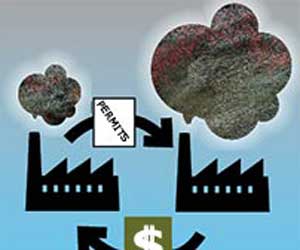
Photo from flickr user <a href="http://www.flickr.com/photos/capnsurly/2461095922/" target="blank">Cap'n Surly</a> used under a Creative Commons license
Paul Krugman wants banking and finance to become boring again:
The banking industry that emerged [in the 1930s] was tightly regulated, far less colorful than it had been before the Depression, and far less lucrative for those who ran it.
Banking became boring, partly because bankers were so conservative about lending: Household debt, which had fallen sharply as a percentage of G.D.P. during the Depression and World War II, stayed far below pre-1930s levels.
Strange to say, this era of boring banking was also an era of spectacular economic progress for most Americans. After 1980, however, as the political winds shifted, many of the regulations on banks were lifted — and banking became exciting again….And the meltdown came.
….But my sense is that policy makers are still thinking mainly about rearranging the boxes on the bank supervisory organization chart. They’re not at all ready to do what needs to be done — which is to make banking boring again.
Part of the problem is that boring banking would mean poorer bankers, and the financial industry still has a lot of friends in high places. But it’s also a matter of ideology: Despite everything that has happened, most people in positions of power still associate fancy finance with economic progress.
This is right on target. High finance is always going to be more exciting than, say, running a regulated electric utility, but it shouldn’t be a lot more exciting.
I’ve had the same thought on a narrower scale too. There’s a real sense in which credit derivatives and structured finance — things like credit default swaps and CDOs — are genuinely useful. They shouldn’t be outlawed. But if they’re done properly, the spreads on these instruments ought to be pretty thin. Selling CDS ought to be about as exciting as selling property insurance and selling CDOs ought to be about as exciting as running a mutual fund. But when you get to a point where merely packaging a bunch of securities and then rearranging them makes them suddenly far more lucrative — a blatant violation of the Law of One Price — you should know immediately that something is badly wrong. These things should be reliable money spinners, but not much more.
So what’s the best way of shrinking the financial industry and making it more boring? This is plainly the key to any future regulatory reform. Trying to cap pay, or even trying to reform how pay is established, is a hopeless task as long as the industry itself is huge and swimming in money. But if you shrink the industry, pay takes care of itself.













